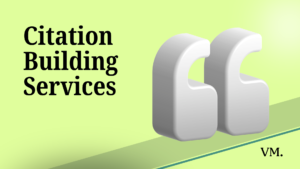In the world of SEO, understanding Domain Authority (DA) and link quality is crucial for anyone looking to improve their website’s visibility. Many people struggle with these concepts, feeling lost in technical jargon and complex metrics. But you don’t have to be an expert to grasp these ideas. With the right guidance, you can learn how to leverage DA and link quality to boost your website’s performance.
Imagine being able to enhance your site’s ranking on search engines. Picture more traffic, better engagement, and increased conversions. This is possible when you understand how DA and link quality work together. You can take action today to improve your online presence.
What is Domain Authority and Link Quality?
Domain Authority is a score developed by Moz that predicts how well a website will rank on search engine result pages (SERPs). It ranges from 1 to 100, with higher scores indicating a greater ability to rank. Link quality refers to the value of backlinks pointing to your site. Not all links are created equal; some carry more weight than others based on their source and relevance.
Understanding these concepts is essential for anyone involved in digital marketing or website management. They help you assess your site’s potential and identify areas for improvement.
Reasons You Need to Know About Domain Authority and Link Quality
Understanding Domain Authority and link quality is vital for several reasons:
- Improved SEO Performance: Higher DA can lead to better rankings.
- Strategic Link Building: Knowing link quality helps you focus on valuable backlinks.
- Competitive Analysis: Understanding your competitors’ DA can inform your strategy.
- Long-term Growth: A solid grasp of these concepts supports sustainable online growth.
By mastering these skills, you position yourself for success in the competitive online landscape.
Step-by-Step Instructions to Understand Domain Authority and Link Quality
This guide will break down the essential steps for understanding Domain Authority and link quality. Each step is designed to build your knowledge progressively.
- Get Familiar with the Basics
- Use Tools for Measurement
- Analyze Your Backlinks
- Develop a Strategy for Improvement
Let’s dive into each step for a clearer understanding.
Step 1: Get Familiar with the Basics
Start by learning what Domain Authority and link quality mean. Read articles, watch videos, or take SEO expert online courses that explain these concepts in simple terms. Familiarize yourself with the terminology used in SEO.
Step 2: Use Tools for Measurement
Use tools like Moz, Ahrefs, or SEMrush to check your website’s Domain Authority and analyze backlinks. These tools provide insights into your current standing and help you track changes over time.
Step 3: Analyze Your Backlinks
Look at the backlinks pointing to your site. Identify which ones are high-quality (from reputable sites) and which are low-quality (spammy or irrelevant). This analysis will help you understand where you stand in terms of link quality.
Step 4: Develop a Strategy for Improvement
Based on your analysis, create a plan to improve your DA and link quality. Focus on acquiring high-quality backlinks through guest blogging, partnerships, or creating valuable content that others want to link to.
Key Considerations For Successfully Understanding Domain Authority and Link Quality
When working on your Domain Authority and link quality, keep these insights in mind:
- Patience is Key: Improving DA takes time. Results won’t be immediate.
- Quality Over Quantity: Focus on getting a few high-quality links rather than many low-quality ones.
- Stay Updated: SEO trends change frequently. Keep learning about new strategies.
Taking it to the Next Level: How to Enhance Your SEO Strategy
Once you grasp the basics of DA and link quality, consider diving deeper into advanced SEO techniques. Explore content marketing strategies that attract organic links or engage in community building through social media. Networking with industry influencers can also lead to valuable backlink opportunities.
Alternatives to Understanding Domain Authority and Link Quality
If focusing solely on DA feels overwhelming, consider alternative metrics like Trust Flow or Citation Flow from Majestic. These metrics also provide insights into link quality but may offer different perspectives that could be useful depending on your goals.
What Are The Best Ways to Increase Link Quality For My Website
Here are the best ways to increase link quality for your website:
- Create Valuable Content: Focus on producing high-quality, informative content that addresses your audience’s needs. This can include blog posts, infographics, or comprehensive guides. Quality content naturally attracts backlinks from other sites looking to reference valuable information.
- Guest Posting: Write articles for other reputable websites in your niche. This not only showcases your expertise but also allows you to include a link back to your site. Ensure that the sites you target have a good reputation and a relevant audience.
- Engage on Social Media: Use social media platforms to promote your content and connect with influencers in your industry. Sharing links in your profiles and posts can drive traffic and potentially lead to more backlinks as others share your content.
- Outreach to Relevant Websites: Identify websites with high domain authority related to your niche and reach out to them. Craft personalized emails explaining the value of linking to your content. Follow up politely if you don’t receive a response.
- Utilize Resource Pages: Create a resource page on your website that compiles useful links and information for your audience. This can encourage other sites to link to you as a valuable resource.
- Fix Broken Links: Regularly audit your existing backlinks and fix any broken links. Additionally, you can reach out to websites with broken links pointing to similar content on your site, suggesting they update their links.
- Participate in Q&A Sites: Engage in forums and Q&A platforms like Quora or Reddit by providing thoughtful answers and linking back to relevant content on your site when appropriate.
- Leverage Testimonials: Write testimonials for products or services you use, which often include a link back to your website. This not only helps you gain backlinks but also builds relationships with other businesse.
- Publish eBooks or Guides: Create eBooks or comprehensive guides that offer in-depth insights into topics relevant to your audience. These can be shared widely and often attract backlinks from those referencing them.
- Use Content Formats That Generate Links: Experiment with different content formats known to attract backlinks, such as infographics, videos, or “ultimate guides.” These formats tend to perform well in generating interest and links.
By implementing these strategies, you can significantly enhance the quality of links pointing to your website, which will improve its authority and visibility in search engine results.
What Are the Benefits of Creating a Resources Page For my Website
Creating a resources page for your website offers numerous benefits that can enhance user experience, boost your site’s authority, and improve overall engagement. Here are some key advantages:
- Establishes Authority and Trust: A well-curated resources page positions your website as an authority in your field. By providing valuable, high-quality content, you demonstrate expertise, which helps build trust with your audience.
- Delivers Value to Visitors: A resources page serves as a one-stop destination for users seeking information. By consolidating useful tools, guides, and links, you make it easier for visitors to find what they need, encouraging them to return to your site for more.
- Enhances SEO and Drives Traffic: Resource pages are often rich in keywords relevant to your niche, which can improve search engine rankings. As more users find and link to your resources, your site can attract increased organic traffic.
- Encourages Sharing and Backlinks: High-quality resources are more likely to be shared and linked by other websites. This not only drives traffic but also enhances your backlink profile, further boosting your site’s authority.
- Improves User Engagement: By offering a variety of content formats—such as articles, videos, and infographics—you cater to different learning styles. This increases the likelihood that visitors will spend more time on your site and explore additional content.
- Builds Goodwill with Other Brands: Linking to reputable sources within your resources page acknowledges their expertise. This can lead to reciprocal linking or partnerships in the future, enhancing your network within the industry.
- Supports the Buyer’s Journey: For businesses, a resources page can nurture leads by providing helpful information at various stages of the buyer’s journey. This positions your brand as a go-to resource when potential customers are making decisions.
- Increases Repeat Visits: Regularly updated resources keep visitors coming back for new information. If users find value in what you provide, they are more likely to bookmark your site and return frequently.
A resources page is not just an additional feature; it’s a strategic asset that can significantly enhance the value of your website while fostering trust and engagement with your audience.
Wrapping Up and My Experience With Understanding Domain Authority and Link Quality
Understanding domain authority and link quality has been so important for my SEO efforts. By applying these concepts, I’ve seen significant improvements in my website’s visibility and traffic. You don’t need a technical background to succeed in this area; with some effort and the right resources, anyone can enhance their online presence effectively. Start today, and watch your website explode! (I mean, in a good way.)
FAQ
Domain Authority is a metric developed by Moz that predicts how likely a website is to rank in search engine results pages (SERPs). It ranges from 1 to 100, with higher scores indicating a greater likelihood of achieving better rankings.
Domain Authority is calculated based on various factors, including the total number of backlinks, the quality of those links, and the number of unique linking root domains. Moz uses a machine learning algorithm to evaluate these factors and generate a DA score.
A higher Domain Authority score correlates with better rankings in search results, which can lead to increased organic traffic. It serves as an indicator of a website's overall credibility and trustworthiness in its niche.
Several factors influence Domain Authority, including:
- The quality and quantity of backlinks.
- The reputation of linking domains.
- The age of the domain.
- Content quality on the site.
- User experience metrics such as site speed and mobile responsiveness.
Link quality refers to the value of backlinks pointing to your website. High-quality links come from reputable, relevant sources and significantly contribute to your site's authority and ranking potential. Poor-quality links can harm your SEO efforts.
To improve link quality:
- Create valuable, shareable content.
- Engage in guest posting on reputable sites.
- Participate in relevant online communities.
- Fix broken links pointing to your site.
- Build relationships with influencers in your niche.
No, Domain Authority is not an official Google ranking factor. It is a third-party metric created by Moz that aims to predict how well a site might rank based on its backlink profile.
There isn't a universal "good" DA score, as it varies by industry and competition. Generally, scores above 40 are considered decent, while scores above 60 are excellent for most niches.
It's beneficial to check your Domain Authority regularly—monthly or quarterly—to monitor progress and understand how your link-building efforts are affecting your site's authority over time.
Increasing Domain Authority takes time and consistent effort. Focus on building high-quality backlinks, improving content, and enhancing user experience for gradual improvement rather than seeking quick fixes.



